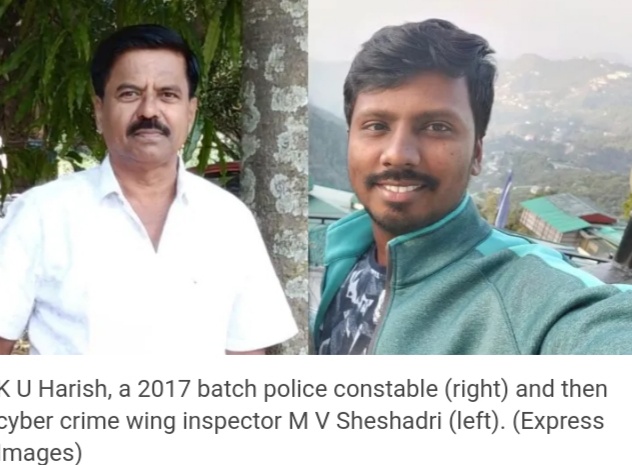M V Sheshadri, who was then the district Cyber Crime, Economic Offences, and Narcotics (CEN) wing police inspector, said that just as Tumakuru was opening up after a lockdown, the agriculture-dependent district on November 2 saw at least 63 complaints of money being withdrawn from their bank accounts without their knowledge.
“This was unheard of in the region. In two days, around Rs 30 lakh was withdrawn from various accounts.
All victims stated that they had not shared any One Time Password (OTP) with anyone, neither did they get any scam calls,” he shares.While the police tried to track the withdrawal locations, they were in for another surprise. The money was being withdrawn from ATM kiosks in Bengaluru, Delhi, Chennai and other towns in the country – Rs 1 lakh or less being withdrawn in each transactionTumakuru CEN police, during further probe, learnt that the accused used to buy expired debit cards and were cloning the debit cards by installing skimming machines in ATM kiosks. They would skim the debit cards in one state and withdraw the money in another state to make things complicated for investigators. Their arrest led to solving more than 65 cases registered in Karnataka, a police officer said.
Conviction and sentencing
Tumakuru CEN police filed a chargesheet before the court. On December 30, 2024, the Second Additional District and Sessions Court of Tumakuru convicted Ivan and Makamu and sentenced them to eight years’ imprisonment.

Judge Anantha H said in the order, “It is the duty of every court to award proper sentences having regard to the nature of the offence and the manner in which it was executed or committed. The court must not only keep in view the rights of the victim of the crime but also the society at large while considering the imposition of appropriate punishment.”
Sheshadri said that later banks stopped using magnetic strips in ATM cards and switched to microchip technology to prevent skimming.


